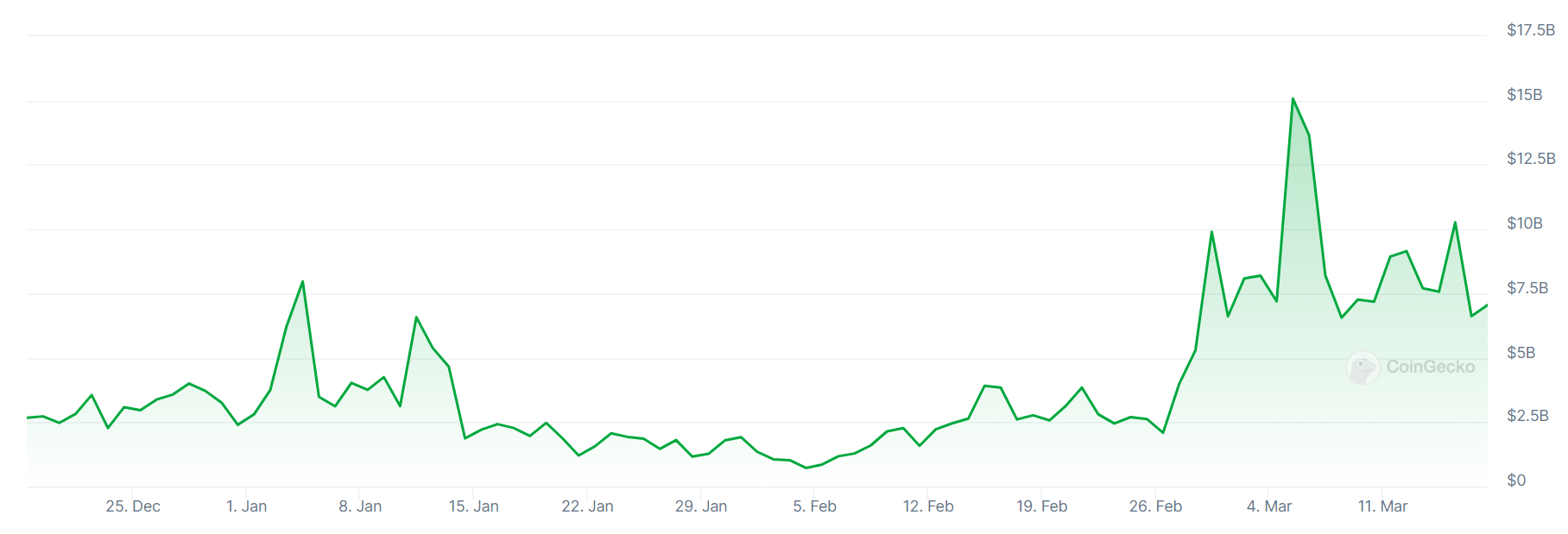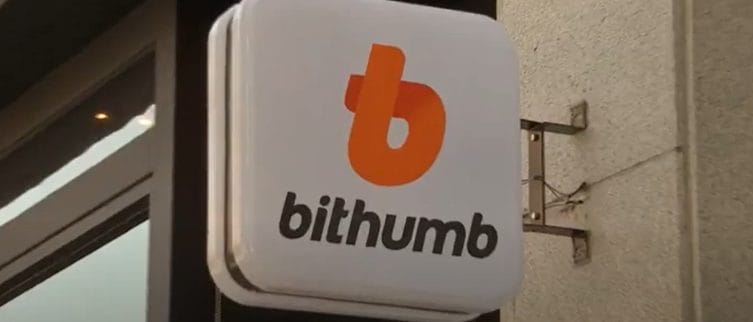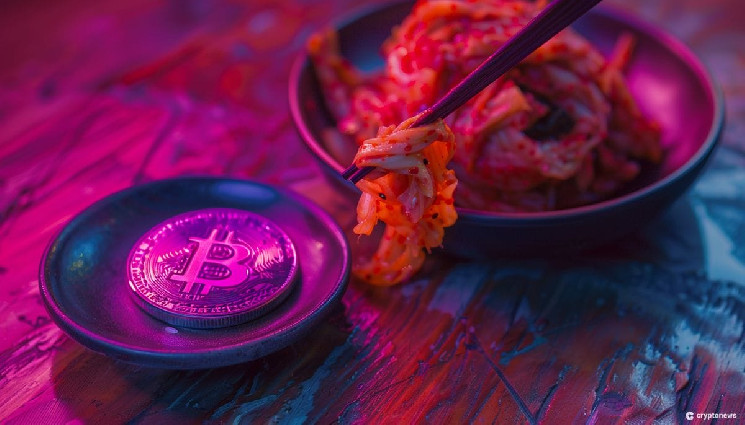[ad_1]
Kimchi premium crypto price discrepancy is driven by a lack of South Korean corporate investment in Bitcoin (BTC), say South Korean experts.
Per Hanguk Kyungjae, a paucity of domestic investment options also drives the phenomenon that recently saw BTC prices in South Korea outpace the rest of the world by 10%.
Kimchi Premium: Are South Korean Companies to Blame?
Despite a recent dip in BTC prices, the kimchi premium held strong at over 8% over the weekend.
 Kimchi premium prices at the time of writing for Bitcoin. (Source: Cryprice)
Kimchi premium prices at the time of writing for Bitcoin. (Source: Cryprice)Trading volumes on major domestic platforms also remained high, after starting a steady climb in early February.

Trading volumes on the Upbit crypto exchange over the past three months. (Source: CoinGecko)
The media outlet quoted Hwang Seok-jin, a Professor at Dongguk University, as explaining:
“Compared to other nations, there are relatively few corporations in South Korea that hold Bitcoin. Since the amount of Bitcoin held by institutions is smaller than that held by individual investors, upward price pressure is relatively high. This is particularly noticeable during periods of excessive demand.”
South Korean news outlets were captivated when Tesla announced its Bitcoin investments in early 2021.
Speculation during the 2021 crypto bull market centered on whether South Korean firms would attempt to follow suit.
However, a series of crypto-related controversies have thus far hampered big-name companies’ bids to invest in Bitcoin.
Their cause has not been helped by legal cases involving traders who prosecutors accused of exploiting the kimchi premium.
Stock Market Blues Drive Bitcoin Demand?
Other experts claimed that South Korea’s wealth in relation to its citizens’ investment options was another factor.
The Gross Domestic Product (GDP) in South Korea expanded 2.2 percent in the fourth quarter of 2023 over the same quarter of the previous year, following 1.4 percent growth in the third quarter.https://t.co/c8X3wZxgHS pic.twitter.com/jzvrgW3Xz3
— TRADING ECONOMICS (@tEconomics) March 4, 2024
South Korean wages have been increasing every year for the past two decades. Conglomerate employees in the nation earn more than most of their East Asian counterparts, Yonhap reported this week.
However, a “lack of investment sources” persists, due to a “sluggish domestic stock market,” experts said.
Stocks took a plunge on Friday after a three-day rally as foreign investors went on a selling spree amid higher-than-expected inflation in the United States. The local currency fell sharply against the dollar. https://t.co/gwQ6OH8JQ5
— The Korea JoongAng Daily (@JoongAngDaily) March 15, 2024
Kim Young-ik, a Professor at Sogang University’s Graduate School of Economics, said:
“As the domestic stock market has recently been slow and unresponsive, there is a tendency for investors, especially the younger generation, to flock to […] cryptoassets.”
Experts claimed other factors were also at play, such as bans on overseas exchanges that target South Korean customers.
This factor alone has led to liquidity-related concerns during times of high demand. Only five South Korean companies have licenses that allow them to offer KRW-crypto trades.

A sign outside a branch of the crypto exchange Bithumb office in South Korea. (Source: MBC/YouTube)
The media outlet conceded that a final factor that may cause this unusual crypto price phenomenon may also play a part. The newspaper wrote:
“The kimchi premium could also be evidence that South Koreans generally just have a higher level of interest in cryptoassets than people in other countries.”
[ad_2]

